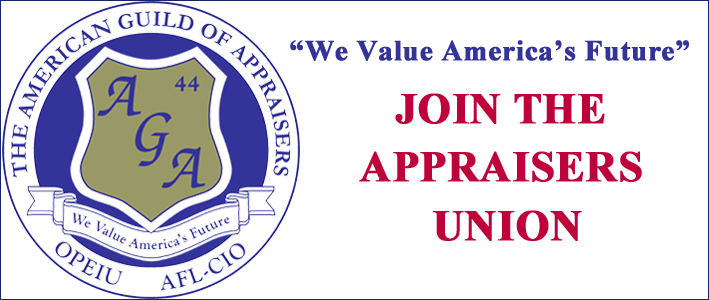Appraiser Expert Witness Issue

Discovery of Draft Expert Witness Reports (Draft Appraisals) in State Court – a Chart
Appraiser Michael Brunson, SRA, MNAA, and I recently wrote an article for the Appraisal Institute‘s 4th Quarter 2015 edition of Valuation entitled “Getting Ready for Expert Witness Work: 10 Practice Pointers.” One of the pointers is that while the Federal Rules of Civil Procedure (Rule 26) now generally protect a retained expert witness’s draft reports (e.g., draft appraisals) from discovery by the opposing party, appraisers need to understand that if a litigation is pending in state court and thus subject to the state’s rules of civil procedure, the protection regarding drafts may be different or non-existent. We suggested that expert witness appraisers should have a specific discussion with the attorney retaining them about the preparation and retention of draft appraisal reports and about the potential for being required to produce them as part of the discovery process.
The following excerpt from the article discusses the importance of understanding the potential “discoverability” of a draft report:
Understand the “discoverability” of information in your workfile.
Attorneys and expert witness appraisers need to pay close attention to whether or not draft materials and other preliminary content in their workfiles will be available to the other side in discovery. In federal court, the discoverability of draft reports is pretty clear: under the revised version of Rule 26 of the Federal Rules of Civil Procedure that took effect in 2010, draft reports and communications with the attorney who retained the expert are not subject to regular discovery by the other side. However, there’s a catch: many states have rules of civil procedure that do not follow the federal rule, which means that if you are a testifying expert in a state court case in, say, California, any draft reports you’ve created and your correspondence with the attorney may be fully discoverable by opposing counsel. Accordingly, in California and states with similar laws [], attorneys generally do not want their testifying experts to create drafts until their likely opinions and underpinnings to them are established.The bottom line for appraisers hired as experts with respect to draft reports and written communications with the attorney? Get the attorney’s specific direction on this matter at the beginning of the engagement (different attorneys will have different points of view) and maintain your workfile as if everyone in the case — including the opposing side — will see it.
We have researched and prepared the chart below in an attempt to summarize whether draft reports may be discoverable under the rules of civil procedure or case law in particular states. It should be noted that this information is for the purpose of initiating a discussion between the appraiser and retaining legal counsel about whether drafts should be created in the course of the assignment and how they should be handled. The summary below is general to civil litigation in each state. Some states have different rules for certain types of litigation (e.g., special rules for condemnation action appraisals and drafts thereof).
“Discoverable” in the chart means that an opposing party potentially could obtain an expert’s draft report through proper discovery methods (such as by document demand or subpoena). Where the issue was not clearly determined by a state’s rules, it has been noted as “undetermined” in the chart. It is also important to understand that most states which deny discovery of draft reports have limited exceptions to the rule — another reason to have a specific discussion with the attorney retaining you as an expert witness.
| State Court | Are Draft Reports of a Testifying Expert Witness Discoverable? | Comments |
| Alabama | Likely Not Discoverable | Ex parte Tuscaloosa County, 825 So. 2d 729 (Ala. 2001) (denying discovery from appraisal expert beyond specific matters identified in Ala. R. Civ. P. 26(b)(4)). |
| Alaska | Undetermined | |
| Arizona | Likely Discoverable | Arizona Supreme Court declined to adopt protection for draft reports of testifying expert witnesses. |
| Arkansas | Likely Not Discoverable | |
| California | Discoverable | California law does not extend protection to drafts reports of testifying expert witnesses. |
| Colorado | Not Discoverable | Colorado Rule of Civil Procedure 26(b)(4)(D) (effective July 1, 2015). |
| Connecticut | Likely Discoverable | Connecticut Practice Book Section 13-4(b) suggests expert’s entire file is subject to discovery. |
| Delaware | Not Discoverable | Delaware Superior Court, Rules of Civil Procedure, Rule 26(b)(5). |
| Florida | Likely Discoverable | See, e.g., Peck v. Messina, 523 So. 2d 1154 (Fla. Dist. Ct. App. 1988). |
| Georgia | Likely Not Discoverable | See McKinnon v. Smock, 434 S.E.2d 92, 93 (Ga. Ct. App. 1993). |
| Hawaii | Undetermined | |
| Idaho | Not Discoverable | Idaho Rule of Civil Procedure 26(b)(4)(2) (effective July 1, 2014). |
| Illinois | Discoverable | Illinois Supreme Court Rule 213. |
| Indiana | Potentially Discoverable | Indiana has not adopted 2010 revision to FRCP 26(b)(4). |
| Iowa | Not Discoverable | Iowa Rule of Civil Procedure Rule 1.508(1)(d). |
| Kansas | Not Discoverable | Kansas Statute Section 60-226(b)(5)(B). |
| Kentucky | Potentially Discoverable | Hager v. Allstate Ins. Co., No. 2007-CA-002599-MR (Ky. App. Oct. 16, 2009) (drafts reports discoverable if relevant to impeachment or credibility). |
| Louisiana | Not Discoverable | Louisiana Code of Civil Procedure 1425. |
| Massachusetts | Generally Not Discoverable | Mass. Rule of Civil Procedure 26(b)(3). |
| Maine | Not Discoverable | Maine Rule of Civil Procedure 26(b)(4) (effective September 1, 2014). |
| Maryland | Likely Discoverable | Maryland Rule 2-402(e)(1) provides for discovery of “any written reports made by the expert.” |
| Michigan | Not Discoverable | See Franzel v. Kerr Mfg. Co., 600 N.W.2d 66 (Mich. Ct. App. 1999). |
| Minnesota | Likely Not Discoverable | Minnesota practitioners generally do not regard drafts as discoverable, though Minnesota’s rules do not provide express protection. |
| Mississippi | Undetermined | |
| Missouri | Potentially Discoverable | Draft reports are not expressly protected in Missouri’s rules and a Missouri appellate court has suggested that testifying expert’s file is not protected. State ex rel. Tracy v. Dandurand, 30 S.W.3d 831, 835 (Mo. 2000). |
| Montana | Undetermined | |
| Nebraska | Likely Not Discoverable. | See Podraza v. New Century Physicians of Neb., LLC, 789 N.W.2d 260 (Neb. 2010). |
| Nevada | Likely Discoverable | Nevada rules do not contain a protection against discovery of draft reports. |
| New Hampshire | Undetermined | |
| New Mexico | Undetermined | |
| New York | Not Discoverable | New York’s Civil Practice Law and Rules (“CPLR”) provides very limited discovery regarding experts, outside of Commercial Division cases. Procedures are different, however, for condemnation and draft reports in condemnation cases may be discoverable. |
| New Jersey | Not Discoverable | New Jersey Court Rule 4:10-2(d). |
| North Carolina | Not Discoverable | N.C. R. CIV. P. 26(b)(4)(d) (effective for cases filed on or after October 15, 2015) |
| North Dakota | Undetermined | North Dakota has not adopted the 2010 change in FRCP 26 regarding discoverability of draft reports. |
| Ohio | Not Discoverable | Ohio Rule of Civil Procedure 26(B)(5)(b) (effective July 1, 2012). |
| Oklahoma | Not Discoverable | Oklahoma Statutes, Title 12, Civil Procedure Section 3226(B)(4). |
| Oregon | Not Discoverable | Discovery in Oregon state courts is far more limited than in other states. |
| Pennsylvania | Not Discoverable | Pennsylvania Rule of Civil Procedure 4003.5. |
| Rhode Island | Undetermined | |
| South Carolina | Undetermined | |
| South Dakota | Not Discoverable | South Dakota Statutes, Title 15, Civil Procedure Section 15-6-26(b). |
| Tennessee | Not Discoverable | |
| Texas | Potentially Discoverable | Texas Rule of Civil Procedure 192.5 suggests that no work product protection exists for draft reports. |
| Utah | Not Discoverable | Utah Rules of Civil Procedure, Rule 26(b)(7)(A). |
| Virginia | Likely Not Discoverable | Moyers v. Steinmetz, 37 Va. Cir. 25 (1995). |
| Vermont | Not Discoverable | Vermont Rule of Civil Procedure 26(b)(4)(B). |
| Washington | Likely Not Discoverable | |
| West Virginia | Undetermined | |
| Wisconsin | Potentially Discoverable | Wisconsin law does not extend specific protection to drafts reports of testifying expert witnesses and rule making commentary suggests that the attorney work product protection is lost with respect to testifying experts. |
| Wyoming | Undetermined |
The above chart is subject to continued research and updating. Please forward comments, potential corrections and updates to Peter Christensen at p…@liability.com.

- LoanDepot Appraisal Discrimination Settlement - March 28, 2024
- Should Property Data Collectors Be Licensed? - February 29, 2024
- VA Appraisal Request Form at Heart of AIR Violation Class Action - May 23, 2023





































Thank you for the information.
Sound advice and helpful article. Right or wrong, when I worked at IRS there was always a concern by Division Managers about creating documents or emails that could or may be discoverable.
In my own practice I’m not worried about discovery since I do not create documents that are subject to revision at the request or urging of clients. I understand cases where others feel that is necessary, but for myself I choose not to do so.
That way I’d never be placed in a position of having to explain on the stand why a conclusion of highest and best use was one thing in a draft report and a completely different thing in another.
I think modifying reports after consultation with clients creates too strong a perception of advocacy even when that is not actually the case. Just an opinion.